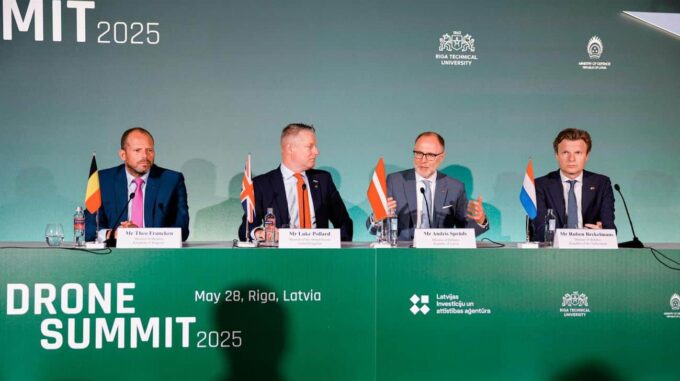Turkey and Belgium seek to join the “Drone Coalition” for Ukraine: a new stage of international support

In light of recent developments surrounding support for Ukraine in its fight against Russian aggression, two European countries—Turkey and Belgium—have expressed their desire to join the so-called "Drone Coalition." This initiative, operating within the framework of the Contact Group on Defense of Ukraine, has become an example of the international community’s efforts to enhance Ukraine’s defense capabilities and modernize its armed forces through unmanned technologies. According to information released by the Latvian Ministry of Defence, which is currently performing coordination duties within the "Drone Coalition," these countries have indicated their intention to formally participate in joint activities. Latvia’s Defence Minister, Andris Sprūds, made a statement during the recent "Coalition" summit held on Wednesday. He noted that Belgium and Turkey have already expressed interest in joining this international initiative aimed at supporting Ukraine in the field of drone technology. It is important to highlight that the existing "Drone Coalition" has already gained significant experience and achieved results since its establishment in February 2024. To date, it includes 18 member countries that collectively contribute resources to the project. In 2024 alone, this international group provided approximately €1.8 billion in support to Ukraine. Plans for 2025 envisage even more substantial financial investments—around €2.75 billion. The main mechanism of this support is a joint procurement fund for UAV systems, managed by the United Kingdom, one of the leaders of the coalition. This fund was created to facilitate centralized purchasing of modern drone technologies, allowing member countries to acquire necessary equipment more efficiently and reduce costs. Additionally, specialized national support programs are planned, enabling individual countries to develop their own projects and technologies in this sphere. Particular attention is now given to the procurement of tactical reconnaissance drones, which are critically important for Ukrainian defense forces. Latvia, which is currently acting as the chair of the coalition, has already announced its plans for 2025: the country intends to allocate €20 million for drone procurement. An additional €10 million is planned for supporting joint cooperation projects with Ukrainian enterprises. This demonstrates Latvia’s active stance in developing defense technologies and supporting Ukraine amidst the ongoing war. According to Sprūds, since its inception, the "Drone Coalition" has provided significant assistance to Ukrainian defense, and the inclusion of new members is expected to further strengthen this support. Even with planned expansion, the process of new country accession requires approval from current participants, which is typical for international alliances. In fact, in March 2024, the "Drone Coalition" made its first substantial financial contribution, allocating €20 million for the procurement of tactical reconnaissance drones for the Ukrainian Armed Forces. This enabled Ukraine to strengthen its reconnaissance units and prepare for modern combat tasks. Another important milestone is Norway’s recent confirmation of support for Ukraine, agreeing to allocate additional funds specifically for the production of Ukrainian drones. This will be a significant contribution to the development of Ukraine’s defense industry. This example demonstrates how international cooperation extends beyond financial and technical supplies, actively contributing to the growth of Ukrainian enterprises and technologies. Thus, the process of expanding the "Drone Coalition" continues. The accession of Turkey and Belgium will be a significant step toward creating an even more powerful and effective support system for Ukraine. Such developments are a testament to the high level of mobilization and the broad engagement of international partners in the joint effort to counter the aggressor and strengthen Ukraine’s defense capacity during these challenging times.

